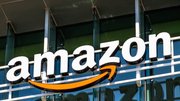Customer Service
E-commerce can limit ability to connect with customers when it matters most — don’t let it
Ankur Prasad, director of product marketing at Facebook Messenger, believes it's time to rekindle the dying art of conversation.

July 15, 2021 by Ankur Prasad
E-commerce has made our lives easier in countless ways. Consumers have access to the largest selection of products to choose from in human history. A global supply chain and lower operating costs for online businesses have driven the prices for most products lower than ever before. The convenience of having items shipped to our doorstep, especially during lock down, is a boon.
For many of us, the world of online reviews, shopping carts, and AI-powered recommendations is now the default environment for our shopping.
Oftentimes, the vast selection of products, crowd sourced opinions, and convenience of online shopping is good enough — you just need a kitchen knife, and there's over a thousand reviews that say, 'this' one is the best. Your needs aren't too particular and you're in a pinch.
However, for something important or expensive, it really helps to ask questions and learn more about the product. A couple of months ago, I wanted to set up a home theatre sound system. I had specific needs — must be small, connect wirelessly with my projector, and work seamlessly with my phone. I spent hours scouring reviews and looking at online forums, but to no avail. While there was plenty of information, I wasn't sure if my pick was the right one. It was only after a trip to a local store and a conversation with an associate was I able to make a decision and feel good about it. I've seen this story play out over and over again.
During the transition from brick and mortar to online shopping, conversation — a critical component of commerce — continues to dwindle away. While technology progresses rapidly, people still want to talk before a big purchase, especially with experts whom they trust. Sometimes even a quick chat is enough to give them confidence.
Enter online messaging!
Online messaging between people and businesses has been growing in recent years. In fact, across Messenger and Instagram we've seen a 40% increase over the last year in daily conversations between people and businesses, a trend accelerated by the COVID-19 pandemic.
We know that people prefer messaging over other communication channels. Our research shows 63% of people across generations prefer messaging over calls or emails when talking to businesses. Messaging can also help businesses foster a personal connection with the customer and build trust. It is not surprising that 65% of the same people from the same research said that they are more likely to shop with a business they can contact via chat.
At Messenger, we imagine a world where people get to choose when and how they interact with businesses. Day-to-day purchases can be completed quickly with minimal effort. But for more meaningful purchases, messaging gives people a chance to slow down, ask questions, hear from experts, and ultimately feel good about their purchase.
We work hard to build tools and services to help businesses connect with their customers. Not only can people message businesses from their Facebook or Instagram pages, our web chat plug-in enables people to message businesses right from their website using Messenger. Our Click to Messenger ads, which kick starts a conversation with the business in Messenger when clicked on, have helped millions of people and businesses connect.
We are on the cusp of a fundamental shift in how people shop online. Just like the innovators and entrepreneurs who saw the possibilities with e-commerce earlier on, those who embrace this new paradigm shift will reap similar benefits.
So, the next time you're thinking about the best way to reach your loyal customers and find new ones, just strike up a conversation.
Ankur Prasad is director of product marketing at Facebook Messenger
About Ankur Prasad
Prior to that, Ankur was the Head of Marketing for the Amazon Appstore, a division that he doubled over the course of 3 years. Ankur first joined Amazon to kick off developer marketing efforts for Amazon Appstore where he helped grow the number of apps and games distributed by the Appstore from 20K to 500K. Before Amazon, he led the creation of Microsoft’s first incubator program for student entrepreneurs. He has a Masters in Management Sciences from Stanford University with a focus on strategy and entrepreneurship.






